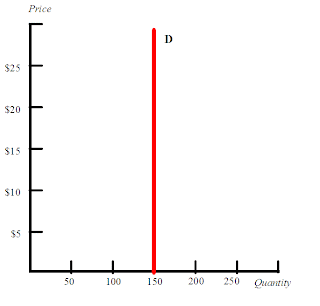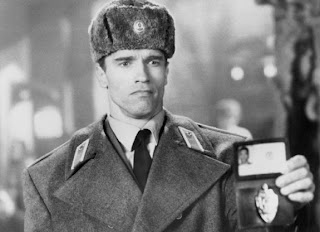Hint:
This article has it partially correct, but the account is likely incomplete.
The comparative costs per mile (in millions of dollars) that the article cites are:
- China: $ 1.3
- US: $ 3.6
- EU: $ 4.2
- Russia: $10.5
- Moscow region: $31.0
A Bargain at $10,500,000 per Magnificent Mile
The article goes to to explain the reasons for these dramatically high costs and correctly identifies
Russia's massive and sprawling bureaucracy as one of the key issues. The Itar-Tass article also suggests that a Soviet legacy, namely complicated contractual schemes, is part of the problem. In other words, the suggestion is that there is a legal structure and code, the respect for which is driving up costs.
Even A Better Buy at $31,000,000 per Monstrous Mile
Indeed, there are laws in Russia, but there are no rules. For example, demanding bribes is against the law. However, "public servants" behavior - like the police or elected officials - suggests that this is no rule against demanding bribes. Therefore, everyone does it, and the doing appears to be systematic.
In a recent trip to St. Petersburg, I befriended a local man who told a story of a police captain overseeing some 500 policemen. This police captain claimed to gross €10,000 a month by collecting a portion of the bribes collected by the 500 foot soldiers. His net intake was lower because he had to kick up a portion of his earnings upstairs. A Moscow friend talks of a very close relative who, despite being a decent man, is a bribe-taking police officer. When my Moscow friend asked his relative about this corrupt behavior, the relative responded by effectively saying that taking bribes was a job requirement and code of conduct. The relative went on to say that if he were to behave honestly and ethically, he risked losing his job or even his life.
Anecdotal indications are that much of the income being made in Russia by the elite are on the backs of ordinary people who pay a heavy tax for merely being a citizen of their country. This tax, paid in the form of bribes and kickbacks, is not part of the official 13% income flat tax or other official, on-the-book taxes. Here are a couple of other commonly used Russian mechanisms for funneling fees from the public into a few pockets:
- A government official grants a contract to an uncompetitive bidder with the clear expectation that the bidder will pay dues to that official after winning the contract. For example, if a job costs $20 to complete, the official may accept a bid for $50, allowing the bidder to give a $20 kickback to the official. As such, we have a win-win-lose scenario. The bidder wins a sweet deal, the official collects a sweet kickback, and the tax payer loses by having to finance a bigger tab.
- When it comes to commercial real estate in Moscow, book values are typically 10% of their actual market value. This allows real estate investors and developers - most of whom have strong government ties - to pay much less in taxes. To make the arrangement succeed, the bulk of the transaction is conducted in cash, in offshore banks, and in an invisible and corrupt form.
Regrettably, in today's Russia, there is a pervasive and endemic culture of corruption nearly at every level*. This culture demands hidden transactions that ultimately favor the elite few and produces a corrosive leak that eat away at Russia's productivity by artificially increasing costs across the board, including the very dear Russian roads.
In the very best case,
the Itar-Tass article is an incomplete work by an incompetent journalist and his sloppy editor that failed to capture the obvious hidden cost in Russia's $10.5 million and Moscow's $31 million per mile roads. More likely, Itar-Tass has maintained its position as a propaganda arm, formerly Soviet, now Russian.
There is a silver lining: Not long ago, similar situations existed in the US (and unfortunately they seem to be making a comeback). New York's Democratic Party, Chicago's (primarily Democratic Party) political machine, and Los Angeles' police force were hallmarks of government corruption. US did manage to turn a page and become more competitive and prosperous in the process. Russia and Moscow may be (hopefully) following the same path.
-----
* Post Script:
I took a tour of Lenin's mausoleum on a hot day in July. Waiting in a long serpentine line, a local man, who was fluent in English and identified himself as a professor and a hobbyist tour guide, approached me to ask if I wanted to go to the head of the line by paying a fee. As it was hot and I was with my elderly parents, I agreed. Making our way to the mausoleum entrance, the professor tour guide complained about corruption in Russia and specifically singled out Russia's high road costs as an example. Once the story was done, he gladly accepted my money and then bribed the mausoleum guard to let us slip through. The irony of the situation was rather palpable.





















